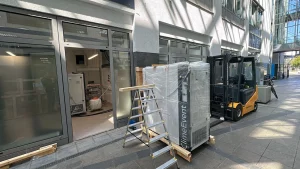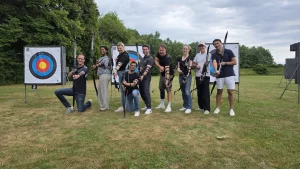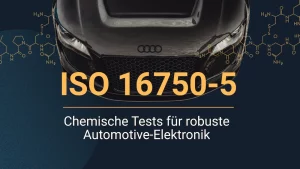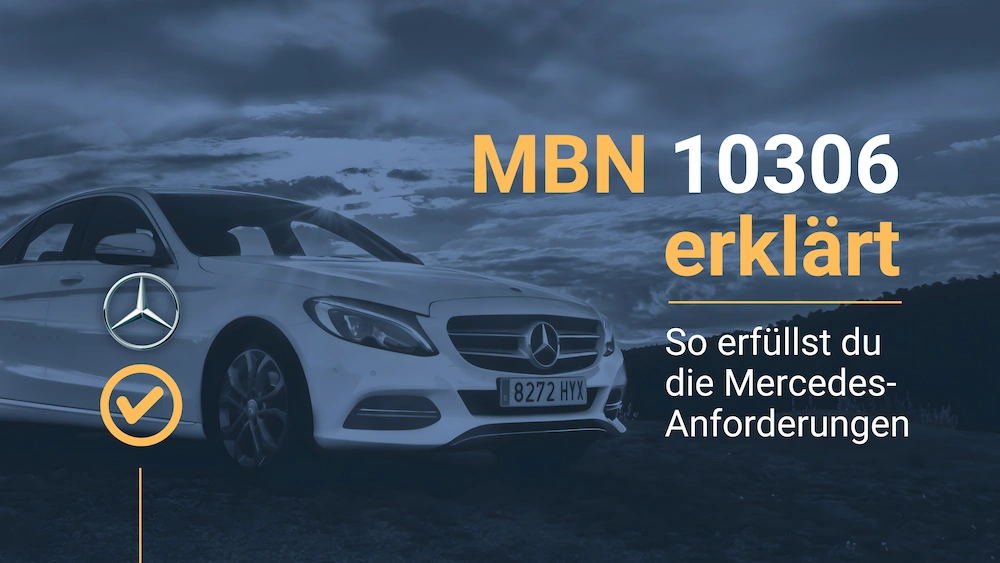Anyone who has ever guided a vehicle component through the validation phase can sing a song about it: strict standards, complex specifications, and plenty of environmental tests are just part of the deal. Mercedes-Benz, in particular, sets clear and demanding standards for component approvals with MBN 10306. But don’t worry – this article takes you on a little journey through the world of environmental simulation against Daimler specifications.
What Exactly is MBN 10306?
MBN 10306 is an internal Mercedes-Benz standard that describes all the important requirements for validation tests that your mechanical and electronic components must meet. It closely aligns with international standards such as ISO 16750-x (road vehicle electronics) or DIN EN 60068 (basic environmental tests) – but adds specific “Mercedes-specific predetermined breaking points,” such as more rigorous temperature change tests or stricter vibration tests.
This ensures that all components are robust enough to withstand the tough everyday life in the vehicle without any problems. After all, none of us want to see customer complaints or recall actions later on, right?
What Types of Tests Does MBN 10306 Specifically Regulate?
To understand what’s behind it, here’s a brief overview of the most important types of tests that enveon, as an ISO 17025-accredited laboratory, regularly performs for customers:
-
Temperature Change Tests
Here you must demonstrate that your component can withstand strong and sudden temperature changes without loss of function or quality. -
Humidity and Corrosion Tests
This test ensures that moisture and corrosive environments do not cause your product to age faster than you’d like. -
Mechanical and Vibration Tests
From shaking tests to shock tests – you check whether your component can handle massive mechanical stresses well. -
Electrical Tests and Lifetime Tests
Reliability over the entire planned service life of the component is thoroughly tested here. enveon
Why is Compliance with MBN 10306 Crucial?
Clearly: meeting the MBN 10306 requirements is mandatory if you want to supply components to Mercedes-Benz. Mercedes-Benz pursues an extremely quality-focused approach, which is later reflected in product quality, reliability, and customer satisfaction.
If you do not meet the requirements, project delays, costly changes, or even delivery stops may occur – things you certainly want to avoid with such a demanding customer. That’s why it usually pays off to go straight to experts and a reliable ISO 17025 testing laboratory.
How Does enveon Help You Implement MBN 10306?
At enveon, we are well aware of the daily challenges in the automotive sector. As a specialized ISO 17025 laboratory, we focus on environmental simulation and technological validation tests according to Mercedes standards such as MBN 10306.
Our pragmatic project management guides you and your product purposefully from the concept phase to successful series approval – and, to be honest, quite unbureaucratically. After all, who wants long discussions when the customer is putting pressure on?
Should crisis situations threaten or even occur (keyword production stop or SOP delay), we are there for you: fast, precise, and solution-oriented. enveon.de
Conclusion – How to Rock Your Mercedes Approval
Conclusion – This is how you rock your Mercedes approval 🎸
The MBN 10306 requirements may seem challenging at first glance, but with the right partner at your side, they quickly lose their terror. Comprehensive environmental simulation, validated component tests, and professional support ultimately lead safely to the desired series release – without unpleasant surprises.
Do you want to learn more about our approach to MBN 10306 or talk directly about your project? We’re happy to help – just write to us via enveon.de or leave us a comment below about your experiences.
We look forward to hearing from you – and now off to the lab, there’s a lot to test! 🚀



